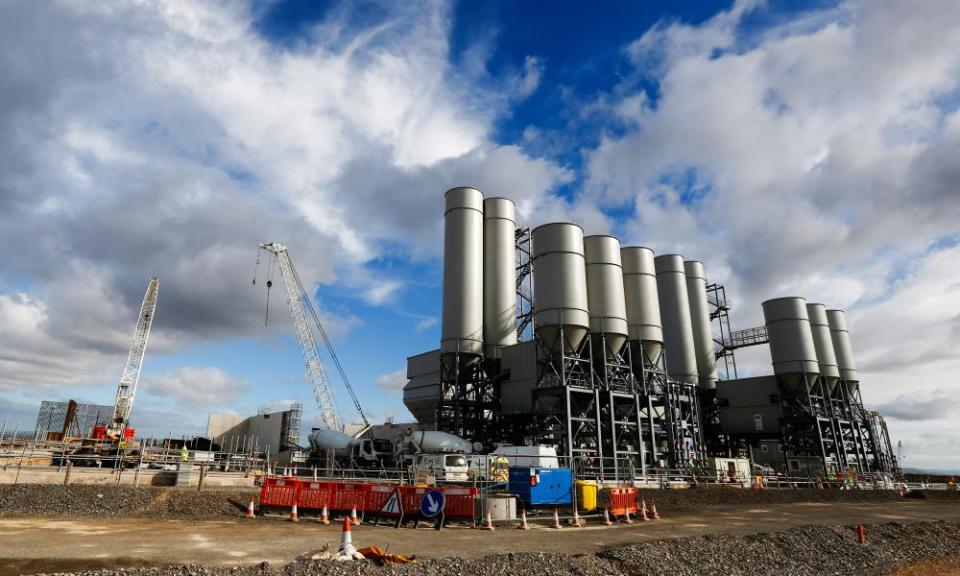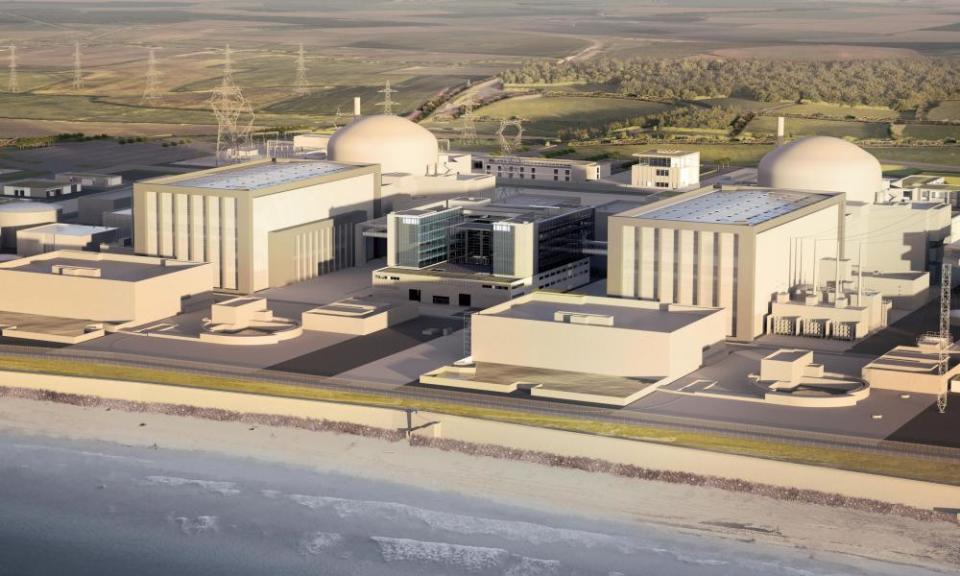Spending watchdog condemns 'risky and expensive' Hinkley Point

Generations of British consumers have been locked into a “risky and expensive” project by the UK’s subsidy deal for a new nuclear power station at Hinkley Point in Somerset, according to a damning report by the spending watchdog.
The National Audit Office said the contract sealed by ministers last September with EDF to construct the country’s first new atomic reactors in two decades would provide “uncertain strategic and economic benefits”.
Further, Brexit and Theresa May’s decision to quit an EU nuclear treaty could make the situation even worse, by triggering taxpayer compensation for EDF or a more generous deal for the French state-controlled company.
The watchdog condemned the past two governments for failing to look at alternative ways of financing the power station, such as taking a stake in the construction.
Observers labelled the report “deeply worrying”, a “strong reprimand” and a vindication of Hinkley Point C’s critics, who had argued it was too costly and advocated alternatives such as wind and solar power.
Under the terms of the 35-year contract, EDF is guaranteed a price of £92.50 per megawatt hour it generates, twice the wholesale price.
The subsidy is paid through energy bills, which the government estimates will translate to a £10 to £15 chunk of the average household bill by 2030.
At the heart of the spending watchdog’s criticism is the coalition government’s failure to look at any alternative financing model, such as taking an upfront stake in the £18bn project.
Instead, the Lib Dems and Tories decided all the construction risk for the plant must lay with EDF and its partner, Chinese state-owned CGN, to keep the project off the government’s books.
Taking a stake would have posed its own risks because of delays to projects with the same reactor design in Finland and France, the NAO admitted. “But our analysis suggests alternative approaches could have reduced the total project cost,” it added.
If the government had taken a 50% equity stake in the construction it could have almost halved the guarantee power price to as low as £48.50 per megawatt hour, according to the NAO.
The auditors were critical of ministers’ decision to negotiate bilaterally with EDF, rather than waiting for other new-build nuclear consortia to compete – an approach that the NAO noted had brought prices down on similar subsidy deals for windfarms.
The government’s case for the contract also weakened after the commercial terms of the deal were agreed by the then prime minister, David Cameron, in 2013, the watchdog said.
Delays to Hinkley and falling wholesale prices, caused by a two-year oil price slump, meant the total costs to consumers for the 35-year deal ballooned from £6bn in 2013 to £30bn now.
That number may rise even higher after new figures on power price expectations are released by the Department for Business, Energy and Industrial Strategy (BEIS) next month.

Brexit could make matters worse still, the spending watchdog warned. In January, the government said it would quit a nuclear cooperation treaty as part of the process of leaving the EU.
That withdrawal from Euratom, the NAO said, “might be interpreted as a change of law” resulting in an adjustment of the £92.50 price promised to EDF, or even trigger a one-off payment for EDF through a compensation clause in the contract.
While the NAO concluded “it will not be known for decades whether Hinkley Point C will be value for money”, the usually conservative watchdog was strongly critical of the government for not assessing alternative finance models.
However, it said the report should not be taken as a recommendation that the government takes a stake in future nuclear projects – but the idea should be explored. Such an approach has been discussed by the Japanese and UK governments for a Japanese-backed plant in Wales.
Unions, industry experts and green groups said the report showed lessons must be learned for any future nuclear subsidy deals.
Commentators also raised questions over whether Hinkley would look cheap compared with alternatives such as wind and solar, which the government had argued would cost more.
Mike Clancy, general secretary of the Prospect union, which represents nuclear workers, said: “This is a deeply worrying report that highlights the lack of accountability and leadership in British nuclear policy.”
Dr Robert Gross of Imperial College called the report a “strong reprimand” of the past two governments.
A “slavish devotion” to free markets that ruled out taking a stake and failure to wait for other nuclear projects to bring competition were to blame, he said. “Renewables will become cheap, and this was not anticipated at all. It now looks likely that by the time it is built Hinkley will seem expensive compared to new solar and wind projects.”
Nina Schrank, energy campaigner at Greenpeace UK, called the report a damning indictment of the government’s agreement. “This year’s school leavers will still be paying for Hinkley when they approach their pension age, so it is concerning that the National Audit Office is suggesting it may not be worth their money,” she said.
Jim Skea, president of the Energy Institute, which represents energy professionals, said the report held “clear messages on the steps needed to protect consumers and taxpayers in the future, including possibly radical changes to nuclear policy”.
An EDF spokesman said: “Today’s report shows that Hinkley Point C remains good value for consumers compared with alternative choices. Consumers won’t pay a penny until the power station is operating and it is EDF Energy and CGN who will take the risk and responsibility of delivering it.”
A BEIS spokesman said: “Hinkley Point C will be the first new nuclear plant in a generation. This was an important strategic decision to ensure that nuclear is part of a diverse energy mix.
“Consumers won’t pay a penny until Hinkley is built; it will provide clean, reliable electricity powering homes and creating more than 26,000 jobs and apprenticeships in the process.”

 Yahoo News
Yahoo News 